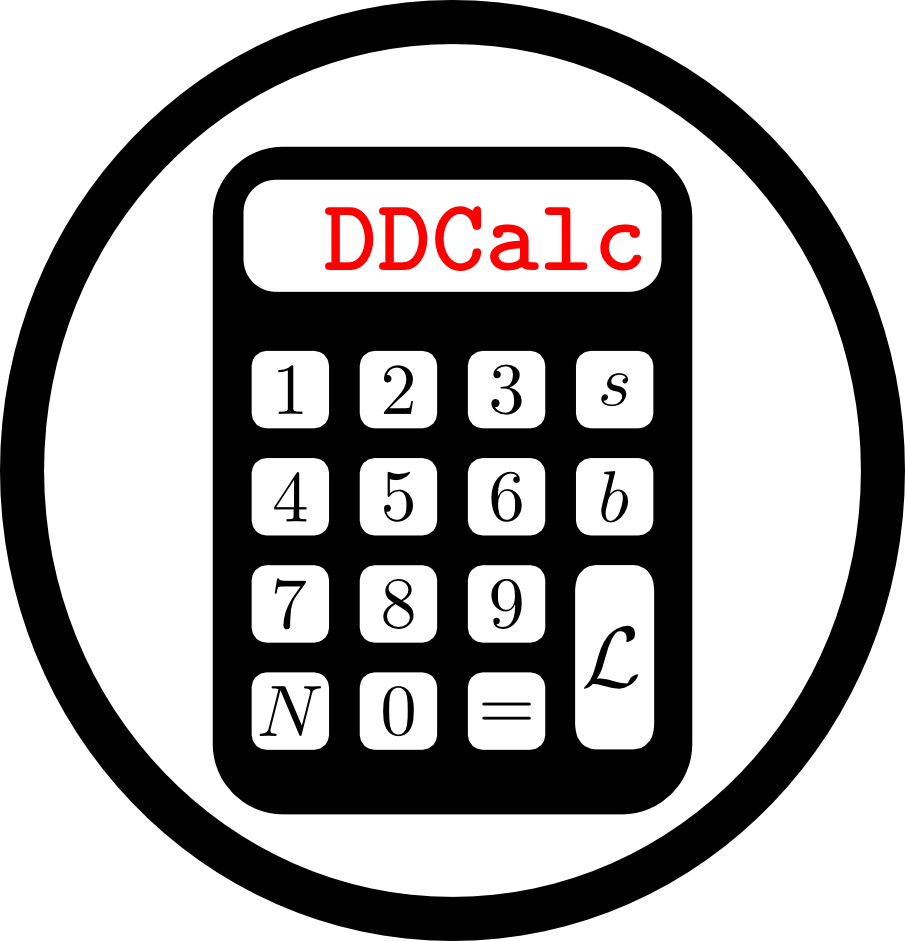
DDCalc v2
Dark matter direct detection phenomenology package
DDCalc is a software package for performing various dark matter direct detection calculations, including signal rate predictions and likelihoods for several experiments.
A full description of this package and the physics framework behind it can be found in the GAMBIT DarkBit paper:
- T Bringmann, J Conrad, JM Cornell, LA Dal, J Edsjö, B Farmer, F Kahlhoefer, A Kvellestad, A Putze, C Savage, P Scott, C Weniger, M White & S Wild 2017, EPJC 77 (2017) 831, arXiv:1705.07920
A description of the new features in DDCalc v2 can be found in
- P Athron , C Balazs, A Beniwal, S Bloor, JE Camargo-Molina, JM Cornell, B Farmer, A Fowlie, TE Gonzalo, F Kahlhoefer, A Kvellestad, GD Martinez, P Scott, AC Vincent, S Wild, M White & AG Williams 2018, EPJC 79 (2019) 38, arXiv:1808.10465
If you write a paper that uses DDCalc, please cite both papers.
Version history:
- v2.2.0 - February 2020: Added implementation of PICO-60 (2019), DarkSide-50 (S2-only) and CRESST-III.
- v2.1.0 - September 2018: Added python support and interface with DirectDM for automated RGE evolution and matching of effective operators.
- v2.0.0 - June 2018: Support for full set of non-relativistic operators with general momentum and velocity dependence, new features for the definition of complex experiments with several signal regions and/or target elements, improved user interface including several new example files, new results from XENON1T (2018).
- v1.2.0 - January 2018: Added implementation of PandaX (2017).
- v1.1.0 - June 2017: Added implementation of Xenon1T (2017) and PICO-60 (2017).
- v1.0.0 - May 2017: Initial release in combination with GAMBIT v1.0.0.
DDCalc releases can be obtained as tarballs from Hepforge.
The latest and greatest version, along with a full revision history, can always be found in the git repository. Compilation and usage instructions, as well as a number of example programs, can be found in the code release.
Maintainers: The GAMBIT Dark Matter Workgroup (ddcalc@projects.hepforge.org)
Many of the routines in DDCalc were originally contributed by Chris Savage (chris@savage.name)
